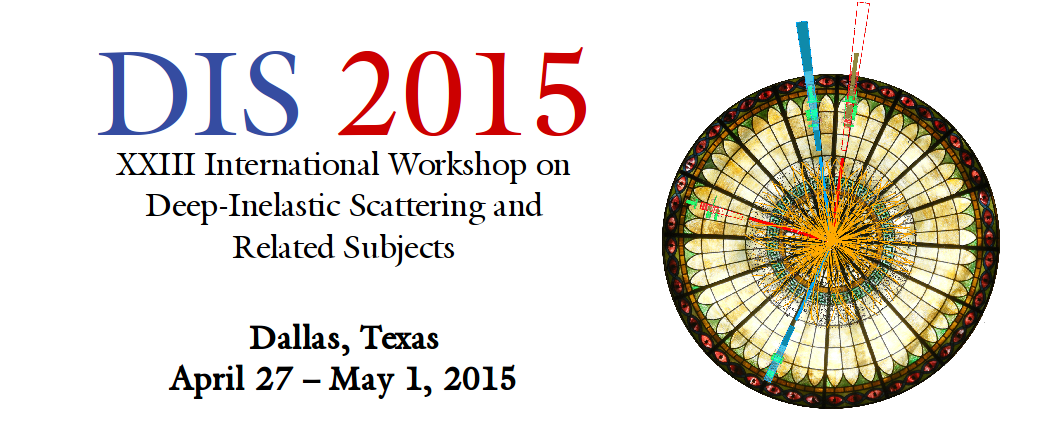Speaker
Philipp Karl Jorg
(Albert-Ludwigs-Universitaet Freiburg (DE))
Description
A major part of the COMPASS-II program will be dedicated to the investigation of generalized parton distributions (GPDs)
and transverse momentum dependent parton distributions (TMDs), which aim for the most complete
description of the partonic structure of the nucleon.
GPDs are experimentally accessible via lepton-induced exclusive reactions, in particular
the Deeply Virtual Compton Scattering (DVCS)
and Deeply Virtual Meson Production (DVMP). At COMPASS, those processes are investigated using an high intensity
muon beam of 160 GeV and a 2.5 m-long liquid hydrogen target. In order to optimize the selection of exclusive reactions at those
energies, the target is surrounded by a new barrel-shaped time-of-flight system to detect the recoiling particles.
COMPASS-II covers the up to now unexplored $x_{Bj}$ domain ranging from 0.01 to 0.15. The option to change simultaneously the charge and polarization of the muon beam allows to
access the Compton form factor related to the dominant GPD $H$, and thus to provide new experimental constraints
on the theoretical GPD models in the intermediate $x_{Bj}$ regime.
Moreover, the $x_{Bj}$-dependence of the nucleon transverse size is investigated via
the pure DVCS cross-section that can be extracted from the sum of cross-sections measured with positive and negative beam polarity.
Preliminary results of pilot measurements and projections on the achievable accuracies will be presented.
Supported by BMBF and EU FP7 (Grant Agreement 283286)
On Behalf of the COMPASS Collaboration
Author
Philipp Karl Jorg
(Albert-Ludwigs-Universitaet Freiburg (DE))
